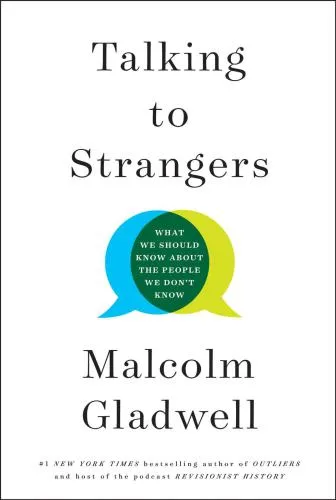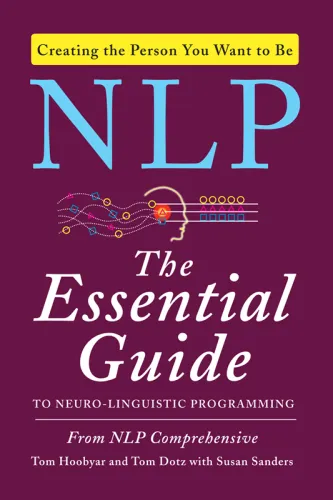Talking to strangers: what we should know about the people we don't know
4.0
بر اساس نظر کاربران

شما میتونید سوالاتتون در باره کتاب رو از هوش مصنوعیش بعد از ورود بپرسید
هر دانلود یا پرسش از هوش مصنوعی 2 امتیاز لازم دارد، برای بدست آوردن امتیاز رایگان، به صفحه ی راهنمای امتیازات سر بزنید و یک سری کار ارزشمند انجام بدینکتاب های مرتبط:
مقدمهای بر کتاب 'Talking to Strangers: What We Should Know About the People We Don't Know'
کتاب 'Talking to Strangers' نوشته ملکوم گلدول، به بررسی مشکلات و چالشهای ناشی از سوءتفاهمها و برداشتهای نادرست در تعامل با افرادی که نمیشناسیم، میپردازد. در این کتاب، گلدول با استفاده از موارد واقعی و تاریخی، به کاوش در ارتباطات انسانی و اشتباهات رایجی که در این زمینه رخ میدهند میپردازد.
خلاصهای جامع از کتاب
گلدول در این کتاب به مسئلهای مهم میپردازد: انسانها اغلب درک درستی از دیگران ندارند و این مسئله میتواند منجر به تصمیمگیریها و قضاوتهای نادرست شود. گلدول با معرفی مفهوم "Default to Truth"، توضیح میدهد که چرا ما به طور طبیعی تمایل داریم به دیگران اعتماد کنیم و چگونه این اعتماد میتواند بعضاً خطرناک باشد. او همچنین به موضوعاتی همچون نقش فرهنگ، رفتارهای غیرکلامی، و تأثیرات نفوذ اجتماعی میپردازد، تا نشان دهد که چرا ارتباط با غریبهها به چالشهایی برمیخورد.
نکات کلیدی کتاب
- درک نادرست و سوءتفاهمات میان افراد، منبع اصلی بسیاری از مشکلات اجتماعی و فردی است.
- مفهوم Default to Truth توضیح میدهد که چگونه اعتماد به طور پیشفرض به دیگران ممکن است منجر به اشتباهاتی شود.
- نیروی اجتماعی و ارتباطات غیرکلامی، نقش مهمی در شکلگیری تصورات و قضاوتهای ما از دیگران ایفا میکنند.
- فرهنگ و نحوهی تربیت میتواند به شدت بر چگونگی درک و تفسیر رفتار دیگران تأثیر بگذارد.
نقلقولهای معروف از کتاب
"Some people are puzzles that should never be solved; sometimes trusting our instincts is not the best strategy."
"The desire to understand each other must be stronger than the capacity to mislead."
چرا این کتاب مهم است
کتاب 'Talking to Strangers' اهمیت ویژهای در دنیای معاصر به دلیل بررسی روابط و سوءتفاهمها در اجتماعی که روز به روز جهانیتر میشود، دارد. در جامعهای که افراد از فرهنگها و پیشزمینههای مختلف با یکدیگر تعامل دارند، درک ماهیت واقعی ارتباطات و اجتناب از سوءقضاوتها بسیار حائز اهمیت است. گلدول با توضیح و شفافسازی ماهیت این تعاملات، سعی دارد تا راهکاری برای بهبود درک متقابل و تقویت ارتباطات مؤثر ارائه دهد.
In "Talking to Strangers: What We Should Know About the People We Don't Know," Malcolm Gladwell embarks on a profound exploration into the ways we interact with strangers. Through meticulously researched anecdotes and historical examples, he unravels the complexities of miscommunication and misunderstanding that often accompany these interactions. The book challenges readers to consider the assumptions we make about others and to reevaluate how we perceive strangers in our daily lives.
Detailed Summary of the Book
Gladwell begins by examining the nature of miscommunication, using the real-life arrest of Sandra Bland as a catalyst for discussion. This incident serves as a case study to highlight how easily interactions can go awry when assumptions are made about intentions and character. Throughout the book, Gladwell delves into various historical events, psychological studies, and real-world examples to illustrate how flawed our understanding of strangers can be.
One of the central themes of the book is the "default to truth" theory, a concept originally proposed by psychologist Tim Levine. Gladwell explains how humans are naturally inclined to believe in the honesty and transparency of others, an evolutionary mechanism that often misleads us, as evidenced by high-profile cases like those of Bernie Madoff and Jerry Sandusky.
The book weaves together a narrative that includes espionage cases, judicial decisions, and catastrophic failures of communication, such as the Munich Agreement and the trial of Amanda Knox. Gladwell's analysis reveals the systematic breakdowns in understanding that occur, examining the tools and assumptions we rely on to make sense of strangers, such as facial expressions, cultural norms, and past experiences.
Key Takeaways
- Humans have a strong tendency to "default to truth," which can lead us to misjudge others' intentions or sincerity.
- Miscommunication is compounded by the assumption that we can "read" strangers accurately through body language or facial cues.
- Context and culture play a significant role in how we interpret actions, often leading to misunderstanding and conflict.
- Understanding and addressing assumptions is crucial in improving communication, especially in cross-cultural or contentious interactions.
Famous Quotes from the Book
"We have to start by understanding the stranger as an individual." - Malcolm Gladwell
“The right way to talk to strangers is with humility and caution.” - Malcolm Gladwell
Why This Book Matters
“Talking to Strangers” is not just a book about miscommunication; it is a clarion call to reassess how we interact with the unfamiliar. In a world increasingly divided by race, politics, and ideology, Gladwell’s insights into the underlying mechanics of human interaction are both timely and necessary. The book serves as a reminder of the importance of empathy, patience, and perspective when bridging gaps between ourselves and those we encounter. Through thoughtful analysis and compelling narratives, Gladwell challenges us to refine our understanding and approach towards strangers, fostering a society that is more connected and less divided by fear and misunderstanding.
دانلود رایگان مستقیم
شما میتونید سوالاتتون در باره کتاب رو از هوش مصنوعیش بعد از ورود بپرسید
دسترسی به کتابها از طریق پلتفرمهای قانونی و کتابخانههای عمومی نه تنها از حقوق نویسندگان و ناشران حمایت میکند، بلکه به پایداری فرهنگ کتابخوانی نیز کمک میرساند. پیش از دانلود، لحظهای به بررسی این گزینهها فکر کنید.
این کتاب رو در پلتفرم های دیگه ببینید
WorldCat به شما کمک میکنه تا کتاب ها رو در کتابخانه های سراسر دنیا پیدا کنید
امتیازها، نظرات تخصصی و صحبت ها درباره کتاب را در Goodreads ببینید
کتابهای کمیاب یا دست دوم را در AbeBooks پیدا کنید و بخرید
















